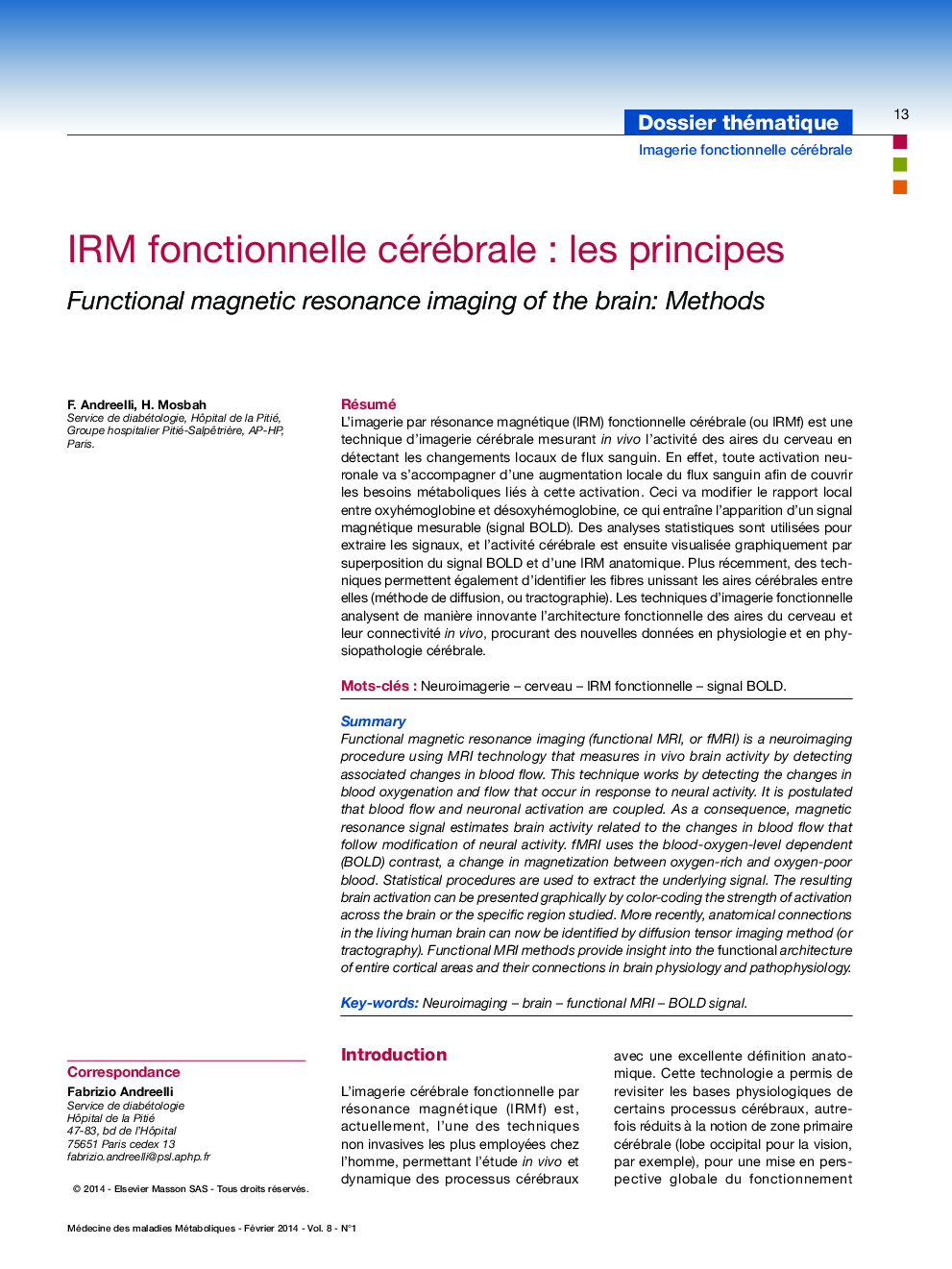| Article ID | Journal | Published Year | Pages | File Type |
|---|---|---|---|---|
| 3274804 | Médecine des Maladies Métaboliques | 2014 | 7 Pages |
Abstract
Functional magnetic resonance imaging (functional MRI, or fMRI) is a neuroimaging procedure using MRI technology that measures in vivo brain activity by detecting associated changes in blood flow. This technique works by detecting the changes in blood oxygenation and flow that occur in response to neural activity. It is postulated that blood flow and neuronal activation are coupled. As a consequence, magnetic resonance signal estimates brain activity related to the changes in blood flow that follow modification of neural activity. fMRI uses the blood-oxygen-level dependent (BOLD) contrast, a change in magnetization between oxygen-rich and oxygen-poor blood. Statistical procedures are used to extract the underlying signal. The resulting brain activation can be presented graphically by color-coding the strength of activation across the brain or the specific region studied. More recently, anatomical connections in the living human brain can now be identified by diffusion tensor imaging method (or tractography). Functional MRI methods provide insight into the functional architecture of entire cortical areas and their connections in brain physiology and pathophysiology.
Related Topics
Health Sciences
Medicine and Dentistry
Endocrinology, Diabetes and Metabolism
Authors
F. Andreelli, H. Mosbah,
